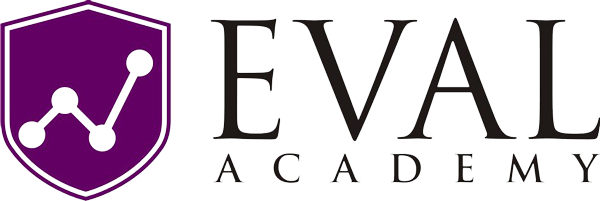Unlocking Impact: The Importance of Evaluation for Non-Profits
This article is rated as:
Evaluation isn't just a buzzword; for non-profits focused on making a genuine difference in their communities, evaluation is indispensable. It's the process that lets you measure how effective, efficient, and impactful your programs and operations really are. It’s about making sure your efforts are hitting the mark.
This article will offer you evidence about why evaluation is so critical for non-profits. We'll share practical advice and an example from the field courtesy of Three Hive Consulting.
So, if you're part of a non-profit and keen on understanding how evaluation can elevate your work, you're in the right place.
Why Does Evaluation Matter for Non-Profits?
Program evaluation supports non-profits in several ways:
Three Hive’s Tips for Effective Evaluation of Non-Profit Programs:
Set Clear Goals: Before diving into evaluation, you should establish clear objectives and outcomes you aim to achieve, otherwise known as beginning with the end in mind. These objectives serve as benchmarks for measuring success and guide the selection of appropriate evaluation metrics.
Encourage Collaboration: Involving partners from the beginning and throughout the evaluation process fosters buy-in, collaboration, and a deeper understanding of your organization's impact. Whether it's donors, beneficiaries, staff, or community members, their insights are invaluable for gaining diverse perspectives.
Customize Your Approach: There’s no one-size-fits-all in evaluation. As a non-profit, you should employ a variety of quantitative and qualitative methods tailored to your unique goals and context. This may include surveys, interviews, focus groups, observations, arts-based methods, or even participatory approaches involving community members. A tailored approach ensures more relevant and actionable insights.
Foster Learning Culture: Shift the perspective on evaluation from a checkbox exercise to a valuable learning tool. Encourage your team to see evaluation as a chance to grow. Welcoming feedback and being willing to adapt based on findings can transform your programs and operations.
Build Evaluation Capacity: Whether you’re managing evaluations internally or seeking external expertise, having the right skills in place is key. Train your staff on evaluation principles and techniques (don’t forget to follow Eval Academy on LinkedIn for free education and resources!), or hire an evaluation consultant to complement your team’s capabilities (find out more about how Three Hive can support you). You can also learn more about evaluating your own program through our new, online course: Program Evaluation for Program Managers. This ensures you’re well-prepared to translate evaluation results into effective action.
Communicate Results Effectively: Sharing your findings is as important as the evaluation itself. Develop a clear, engaging way to present your results to stakeholders, using visuals and stories to highlight your impact and learnings. Effective communication can increase support, drive action, and demonstrate accountability.
Plan for Sustainability: Consider how the insights from your evaluation will be used in the long term. Embed evaluation findings into your strategic planning to ensure that improvements are sustained, and that evaluation becomes an integral part of your organization’s rhythm. Check out our article on Evaluation Sustainability Plans.
Elevating Non-Profits: Real-World Experiences from Three Hive Consulting
At Three Hive Consulting, we've had the privilege of partnering with numerous non-profits on their evaluation journeys. Our collaboration with the REACH Edmonton Council on the Bridging Together initiative serves as a testament to the transformative power of thoughtful evaluation. Three Hive conducted an evaluation of the Bridging Together initiative, aimed at enhancing outcomes for immigrant and refugee children and youth. This initiative involved a collective of youth-serving non-profits, each offering programming focusing on academics, sports, life skills, culture, and recreation.
Three Hive Consulting developed an evaluation plan, engaging stakeholders to define focus areas and questions. Data collection methods included interactive sessions, surveys, micro-interviews, social network analysis, and administrative data analysis. Despite challenges in data collection, the evaluation produced actionable information. The final report demonstrated the initiative's success, aiding in ongoing planning, informing funders, and advocating for future support. This evaluation exemplifies how rigorous assessment can drive program improvements and justify investments in non-profit collaborations.
Some of our other non-profit clients include: United Way Alberta Capital Region, Canadian Mental Health Association BC, BGC Canada, Calgary Homeless Foundation, and Catholic Social Services.
Embark on Your Evaluation Journey
Evaluation isn't just a checkbox; it's a catalyst for growth, learning, and impact within the non-profit sector. By embracing evaluation practices rooted in transparency, accountability, and continuous improvement, your non-profit organization can amplify its effectiveness and create lasting change in the communities you serve.
If your non-profit organization is seeking guidance on evaluation strategies tailored to your unique needs, consider reaching out to Three Hive Consulting. With our expertise in evaluation for mission-driven organizations and commitment to fostering positive change, we're here to support you every step of the way!







